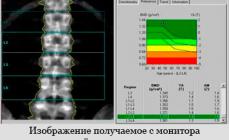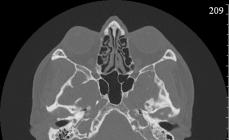August 10 throughout Russia ended receiving budget places in state universities. For many applicants, this day, as it seems to them, put an end to all hopes and future successes. But this is only at first glance! Currently, there are several non-governmental universities in Moscow, which give a very high-quality and popular education: more than 80% of graduates of three of them - Moscow Financial and Law University, Moscow University government controlled and the Moscow Psychological and Social University - work directly at the received specialty or in an adjacent industry. Moreover, their salary averages 60-70 thousand rubles per month.
Not everyone can boast such an indicator, because it is commercial universities that consider active interaction with potential employers and constant monitoring of the needs of the labor market needs one of its most important tasks. In addition, the same teachers often work in prestigious state universities, as it raises their social status, and in non-state universities in Moscow, whose activities are their main source of income. At the same time, the cost of training in commercial educational institutions is usually significantly lower than that of government competitors (in some universities you can also get a discount, for example, for excellent studies or in advance payment). And the reception in many continues. True, there is something to think about?
This is a private Moscow educational institution, founded in 1990, one of the oldest, largest and most advanced in its industry. MFUA became a repeated leader of various ratings of non-state accredited universities in Russia. Students of the Financial and Law University are more than 60,000 people studying in 19 directions of undergraduate, 13 leadership directions, 7 areas with the qualification "Specialist" and 11 postgraduate specialties. The following faculties are open at the IFU:
- Faculty of business I. information technologies
- Faculty of Information Technology
- Faculty of Economics and Law
- Faculty of Economics and Management
- Faculty of Business and Law
- Legal faculty
Education in the Moscow Financial and Law University can be obtained internally, in absentia (evening training), in absentia, in absentia with a visit once a week (on weekends), in absentia using remote technologies. Students of the Day Department of this non-state university of Moscow are given a delay from the service in the army.
Documents for receipt of the first course (full-time and part-time forms of training) can be submitted until August 15. On the correspondence form of training, the reception of documents is completed on September 16.
The cost of studying at the Moscow Finance and Law University varies depending on the qualifications, form of training and preparation. So, in 2013-2014 academic year Students of the first year with the qualification "Specialist" and "Master" need to pay 98,000 rubles a year in full-time education; 69,000 - on the evening form of training and correspondence with a visit once a week; 45 000 - on the classic correspondence and correspondence with the use of remote technologies. The preparation of "bachelors" on the day form of training costs 89,000 rubles per year (except for the branches of informatics and computing equipment, information systems and technologies, information security and applied mathematics - here training costs 112,000 rubles per year). "Evening" are obliged to pay 69,000, "Voirs" with a visit once a week - 59,000, classical "abnormalities" and students studying on correspondence form of training with the use of remote technologies - 45,000.
Mugu, founded in 1991, with the support of the government of the city of Moscow, ranks second in the ranking of the most prestigious non-governmental universities in Russia according to the Russian Agency. IN Russian University Innovation, as he was called Mugu until 2008, more than 10,000 students in 22 directions of undergraduate, 12 directions of magistracy, 5 directions with the qualification "Specialist" and 5 specialties of graduate studies are trained. In this commercial university, Moscow employs 11 faculties who are preparing specialists with higher education:
- Business and Information Technologies
- Economics and Rights
- Information technologies
- Legal
- Correspondence education
- Business and rights
- Rights and economics
- economics and Management
- Humanitarian
- Design
- Rights, business and media technologies
In Moscow University of Public Administration, it is possible to learn in part, in part (evening training), in absentia with a visit once a week (on weekends) and in absentia. You can become a student of the first course of the day and evening form of training until August 15, and by correspondence - until September 16.
The cost of learning for all qualifications and specializations in the day form of training is 69,000 rubles per year (except specialization design under the program of undergraduate, cost - 89,600). Students in part-correspondence (all qualifications) and correspondence formation with a visit once a week ("Magistracy" and "Specialist") need to pay 55,000 rubles per year. When studying under the program of undergraduate, absentee training with a visit on weekends will cost a little cheaper - 49,000. Classic price correspondence education For all qualifications - 40,000 rubles for the academic year.
This prestigious non-government University of Moscow, founded in 1995, prepare bachelors in 14 directions and masters - in 3 directions. MPSU also prepares graduate students in different fields of psychology, jurisprudence, pedagogy and economics. Become a student of the Moscow Psychological and Social University, it is possible without leaving your hometown, since MPSU has 27 branches throughout Russia - from the Kaliningrad region to Krasnoyarsk, and from Krasnodar Region to Yamalo-Nenets JSC. If the student still decides to come to Moscow, this commercial university provides non-resident students a hostel in the village of Leninsky Gorki of the Moscow Region (Cost: 150 rubles a day).
The university has seven faculties that give higher vocational education:
- Psychology
- Legal
- Economy
- Management I. international Tourism
- Logopedia
- Linguistics and Innovative Social Technologies
- Information technologies
In connection with the announcement of additional reception, in 2013 it was possible to enter this non-state university until August 25. Depending on the selected specialty and form of training, the cost of education in the Moscow Psychological and Social University varies.
Bachelor's preparation program:
Full-time learning form from 62 560 (special defectological education) to 82,594 rubles per year (jurisprudence and legal support of national security)
Employment of training 51 282 ruble per year
Correspondence form of training 38 120 rubles per year
Master's training program: 74,500 rubles per year for all specialties (only full-time learning).
Students of "synergies", founded in 1995, in this moment There are more than 30,000 people. Training is conducted at seven faculties: management, economic, Information systems and technologies, legal, design and advertising, sports management and psychology. Programs distance learning In this non-state university, Moscow is marked by the European Quality Signation Uniqu.
MFPU "Synergy" is allocated among other educational institutions by the active development of the network of branches: at the moment they have a university 48, one of which is in Dubai (UAE). However, in 2012, information undermining the image of a commercial university was leaked to the press and television. In particular, there are data that for the money here you can get the necessary mark in the credit book is not knowing at all, which item is surrendered, and also to enter the IFPU without EGE. Note that there are no documentary evidence of these facts.
In 2013, it was possible to enter "Synergy" in 2013 until July 25 (for the full-time education on undergraduate programs) and until August 15 in the magistracy.
The cost of learning in "synergies" is quite high for the non-state University of Moscow. Thus, prices for full-time undergraduate programs range from 90,000 to 240,000 rubles per year. Cheaper to learn in the IFPU at the correspondence department with the use of remote technologies - such programs cost only 32,000 rubles per year.
This university was founded in 1991 and is currently leading 11,000 students. According to the expert rating agency, Rosnou is included in Tor-100 of the best universities in Russia, and according to the results of the Competition of the Ministry of Education and Science of Russia, this non-state university of Moscow received in 2013 financing more than 200 places from the federal budget.
The following faculties operate in the Russian New University:
- Information Systems and Computer Technologies
- Humanitarian technology
- Business technologies in tourism
- Legal
- Economics, Management and Finance
- Psychology and pedagogy
- Sectoral management
Learning at all faculties can be in part, in absentia (in the evening) or in absentia; According to the undergraduate program and in the magistracy (and at some faculties - also on the qualification "specialist").
The cost of studying in the Russian new university varies as follows (minimum and maximum depending on the specialty and form of training, rubles per year):
This commercial University of Moscow, founded in 1993, focused on the area of \u200b\u200bits interests on the economy, management, right and social sciences. More than 20,000 students are trained in three faculties - economics and finance, legal and management. Classes are conducted in part, in part in absentia, in absentia with a visit to the weekend, in absentia with a challenge for a session 2 times a year and remotely.
Prices for training in this non-state university of Moscow, taking into account its popularity (MIEMP is in the hundreds of the best universities of Russia) and the prestige of the preparation directions, relatively low. The cost of studying at Moscow University. S.Yu. Witte varies as follows (minimum and maximum depending on the specialty form of learning, rubles per year):
However, to study at Moscow University. S.Yu. Witte can be free: in 2013, according to the results of the competition of the Ministry of Education and Science of the Russian Federation, the University received 148 budget places.
World university of TechnologyAs I used to be called MTI, was founded in 1997 on the initiative of the Russian government and under the auspices world Organization UNESCO. Today, this commercial Institute of Moscow has focused its attention on two educational niches: the preparation of technical specialists in various areas of life (faculty of technology and modern technologies) and the training of economists, managers and managers (Faculty of Economics and Management). Many experts argue that MTI gives the most qualitative distance education.
In the Moscow Technological Institute, you can study under the programs of the undergraduate (in part, in absentia with a visit for weekends and in absentia with the use of remote technologies) and in the magistracy (only in absentia with the use of remote technologies). It should be noted that this non-state university of Moscow leads full-time training in three directions - informatics and computing; Management and economics, the cost of all programs is 120,000 rubles per year. The price of all directions of the undergraduate of the correspondence form of training in the weekend group - 59,000 rubles per year.
The cost of absentee education with the use of remote technologies in MTI depends on the selected specialization and ranges from 39,000 to 46,900 rubles per year (the qualification "Bachelor") and from 90,000 to 100,000 (Master's qualifications). Until on October 10, this non-governmental Institute of Moscow holds a campaign "Mobile Training", within the framework of which remote education on undergraduate programs can be obtained for 24,900 rubles per year (quota: 17 places), and on master's programs - for 69,000 rubles (quota: 12 places).
EAO, founded in 1998, is one of the youngest commercial universities in Moscow. However, in just 15 years of existence, the Institute managed to join the leadership of the organization of distance learning. In addition, the Board of Trustees of the university regularly allocates free places for applicants, the amount of the points of which three EGE exceeds 195.
Educational programs in the Eurasian Open Institute are aimed at training specialists in the field of economics, finance, management, jurisprudence, marketing, information technologies, psychology and socio-humanitarian sciences.
Learning in this non-state institute of Moscow can be in part, in absentia, in absentia with a visit to the weekend and remotely. For full-time and absentee (in the weekend group) forms of training, documents are accepted only to 25 years. On the classical correspondence - until August 29, but on the correspondence form of training with the use of remote technologies can be received now: the last date of reception of documents is December 19.
The cost of training in the EAOI varies as follows (minimum and maximum depending on the specialty form of training, rubles per year):
MIEP, founded in 1992, was among the first 5 non-state universities in Russia. This educational institution is one of the first to be widely used in the educational process. Electronic educational programs and network technologies, quickly becoming one of the leaders of the use of remote technologies in education. The MIEP is also famous for the fact that he is constantly among the leaders in the number of employed graduates. At the moment, students of this non-state institution of Moscow are 10,850 people, but only 12% of them are trained in the head university. The rest - preferred to learn in one of the 34 branches of the MIEP, including two foreign things: in Prague (Czech Republic) and Bratislava (Slovakia).
Interestingly, the International Institute of Economics and Law, unlike other commercial universities in Russia, is very narrow-controlled. Thus, in the Institute there are only two faculties - the Faculty of Law and the Faculty of Economics and Management, and get the degree of "bachelor" in the MIEP can only be possible in three areas: jurisprudence, economics and management. The degree of "Master" In addition to the three mentioned specialties is also assigned in the direction of state and municipal Governance. Training is conducted in part, in part (evening education), in absentia and in absentia using remote technologies. The deadline for submitting applications for admission to the full-time education in this non-governmental Institute of Moscow - until July 25.
Cost of training B. International Institute Economy and is spending on the selected faculty assigned to the degree and form of training (rubles per year):
IGUMO, founded in 1992, has ten faculties today. Along with the classical divisions (the faculty of management, law Faculty, faculty of psychology, faculty of journalism and faculty foreign languages) In this commercial Institute of Moscow, training is underway at the faculties that arose in response to the modern needs of the Company (Faculty of Information Technologies, Faculty of Design and Faculty of Advertising and PR). In addition, in Igumo, you can go on two unique faculties: photos and theatrical arts.
It is possible to study at the Institute of Humanitarian Education and Information Technologies, internally, in absentia, in absentia with a visit to the weekend, in absentia with a challenge to the session and by the abbreviated program (for students who have a secondary vocational education). The last date of submission of documents for full-time training in this non-state university of Moscow - August 31; All other forms of study - October 15, 2013.
The cost of training at the Institute of Humanitarian Education and Information Technologies depends on the selected faculty and form of training. So, on:
Full-time education form price varies from 80,000 to 95,000 rubles per year;
On the evening and abbreviated forms of education - from 60,000 to 90,000 rubles per year;
On the correspondence form of training with a visit to the weekend and classic correspondence form - from 50,000 to 80,000 rubles per year;
In conclusion, we note that choosing a non-state, it is also worth paying attention to it geographical location. Many educational buildings are on the outskirts of the city or at all in the Moscow region, and this can lead to a loss of several hours on the road every day for 4-5 years.
Veronica Gesbrial
candidate of Sociological Sciences
In the last decade, non-state educational institutions have occupied their own niche on educational Niva. Often the level of preparation of their graduates is not inferior to government educational institutions with an age-old history. And it is not strange. Non-state activities educational institutions Regulated by the same regulatory prescriptions as government activities. After passing a certification procedure, they acquire the right to give graduates of documents on the formation of the state sample, and passing to receive funding from the state and municipalities on the general basis.
The definition of NOU domestic legislation does not contain. In law enforcement practice, the organization is usually implied by private individuals, commercial or non-commercial structures, the organization providing services in the field of education and / or education of children. Nou is established in the organizational and legal forms of the agreed Civil Code of the Russian Federation. They are regulated mainly 237-FZ "On Education in the Russian Federation" and in many respects - profile subtitles.
The founder itself can be carried out by the Founder, or the Board of Trustees formed. The management scheme of the NEO and the powers of the Board of Trustees are determined by the owner (it has the right to delegate this function to the Board of Trustees), are coordinated with the pedagogical team and recorded in the constituent documentation.
In the Soviet period, education was free. In connection with market transformations, the legislator legalized the opportunity to recover from students a fee for their educational services. This has become a prerequisite for creating a lot. Paid, among other things, can be training within the limits of state-forming programs. At the same time, the NOU is not recognized by commercial structures, their activities are not aimed at making a profit.
The legislation of the Russian Federation on education applies to all profile institutions regardless of the right of ownership, legal form and subordination. Non-state universities and other educational institutions are guided by the same regulatory prescriptions as government.
Content and interpretation of category NOU
Legal "know" the legislator did not give. Despite the breadth of use in law enforcement practice, its content is not entirely clear. We will analyze the term according to.

- "Non-state". Art.22 237-FZ divides educational organizations in the form of ownership to state, municipal and private. In Russia, local communities are guaranteed independence, and the municipalities are excluded from the system of government agencies. Strictly speaking, the logical volume of the concept of knowing that it includes all non-state (private and municipal) organizations. But in everyday life, the term "non-state" is synonymized by the concept of "private". Legal status Municipal educational organizations have more similar to the status of similar state structures, rather than private.
- "Educational". Education - Key Democratization Sphere russian society. Legislation OB educational activities Supports the balance between the interests of individuals and society. It is drawn directly to the individual, establishes its right to education and its implementation. According to the National Doctrine of Education in the Russian Federation, the existing system is intended to be among other things: the variability of curricula; ensuring the necessary degree of individualization of education; variety of types of educational institutions.
- "Institution". The concept and features of institutions as organizational form Displayed in Part 2 §7 ch.4 Civil Code of the Russian Federation.
The logical volume of the concept of "know" depends on the context.
When the category under consideration understands expanded, it is often counted: municipal educational institutions; organizations for which educational activities are non-mining; who are not institutions for organizational form.
NOU: Features of the Organizational and Legal Form

Institution in Article 123.21 of the Civil Code of the Russian Federation, the legislator recognizes the unitary non-commercial structure created to implement sociocultural, managerial and other non-commercial. Separate explanations require the term word "unitary".
Unitary is the lack of legal relationships. The founders of unitary organizations do not become participants in Nou (Article 65.1 of the Civil Code). Accordingly, they are deprived of opportunities to directly manage the activities of the legal entity created by them and form the bodies of its management. In Nou, these powers are performed by the public collegial body - the Board of Trustees.
The founder of Nou is recognized as the only owner of it. Economies itself owns assets attached to him on the right of operational management.
Co-foundation in creating knowing is unacceptable.
The Action of Article 123.23 of the Civil Code of the Russian Federation on private institutions is distributed. The latter can be financed by the owners of their property in whole or in part. They are responsible for obligations transferred to them in the management of property. Subsidiary liability in the amount of missing bills of payables are owned by the owner.
The institution is not the only organizational and legal form in which a legal entity that provides educational services in private. Based on the content of 237-ФЗ, the creation of such an organization is possible in any form established by the Civil Code of the Russian Federation for non-commercial structures.
So, the preferred and most common organizational and legal form of the existence of NOU is an institution, which is of particular importance in the management of which is publicly the current Board of Trustees.
Types of know
In the context of 237-ФЗ allocate three independent concepts:

Previously, the following typology of educational organizations was determined normatively:
- preschool
- general Education (from the initial to full general education)
- primary, medium, higher, postgraduate professional formation
- additional education For adults
correctives (for students with disabilities or developmental deviations) - for actual and social orphans
- additional education for juvenile
237-FZ in the current edition does not share know or educational organizations for specific species. Meanwhile, 237-FZ contains a reference to the need to indicate the organizational and legal form and the type of educational organization directly in its name. Allocate the following types of NOU:
- preschool (kindergarten, nursery)
- general Education (School, Board, Gymnasium)
- professional (technical school, lyceum)
- higher Education (Institute, Academy)
- additional Education (Children's Creativity Palace, Art Schools)
- organization of additional trade uniforms (Institute for advanced training)
Depending on the scope of activity, the features of the target audience and educational program Noou can be different types.
Charter know
The activities of state educational institutions are imperatively regulated by typical provisions and developed on their basis. Examples:
- typical position on the educational institution of children's supplement, approved. Order of the Ministry of Education and Science of Russia No. 504 of 26.06.95
- typical position on educational institution of additional professional professionals
These and other typical positions for NOU perform the role of approximate. Legal regulation provided by them is a dispositative. This legislative position corresponds to the provisions of paragraph 5 of article 12,23-ФЗ: unless otherwise notified by law, the statute of NOU is being developed and approved by the knowing at its discretion.
The statute of KNU consists of the following sections:

- "General Provisions" - the section displays a list of implemented types of educational activities, the essence and direction of educational programs, the content of the additional services provided, the tasks of NOU.
- "Organization of NOU Activities" contains a description and conditions for the creation, reorganization and liquidation of the institution. The section may contain a reference to the possibility of creating branches and accession to the Association and Unions. It also displays the mode of operation of NOU.
- "Participants educational process" The section contains a description of the rights and obligations of the administration, teachers, students, as well as a reference to ways to participate in the educational process of parents (relevant in relation to children).
- "Management of Know" reflects the procedure for adopting the charter, the list and procedure for the formation of the governing bodies of the LEU, their powers.
- "Property, financial support of NOU activities" contains a reference to a real law, in which organizations are transferred to property, possible sources of funds and ways of disposal of them.
Information required to display in the NOU Charter
- name
- type and (school, university)
- organizational form
- type of ownership
- information about the founders
- features of the educational process, namely:
- the foundations and procedure for a set of students
- duration of learning
- traditional mode
- description of the knowledge assessment and skills of students
- availability of additional courses, the procedure for their conduct
- procedure for managing NOU:
- the system of management and competence of each of them
- the rules of the founder
- method of organizing and decision making (relevant, first of all, for collegial bodies)
- requirements for the teaching staff and the conditions for receiving teachers to work
- the order of its payment
- the procedure for making changes to the charter
- rights and obligations of participants in the educational process
State Registration Nou
Being a legal entity, the NOU is subject to an incorporation, registration in the FTS, Pension and other funds. For state registry, the following documents are needed:

- studying programs
- confirmation of the location (for example, certificate of ownership of the founder + warranty letter, lease agreement)
- documents of the future leader (passport and certificate of INN)
- documents founder
- founders - Physicians with Russian citizenship
- copies of passports
- certificate certificate
A package of documents relating to the founders depends on their status.
Citizens of the Russian Federation are served:
- a copy of the passport
- certificate of assignment of the Inn
Foreign individuals serve:
- document confirming personality (for example, a foreign passport of an ingenic state) with a notarized translation
- confirmation of the right permanent residence in the Russian Federation
- certificate of assigning the INN (if a foreigner received such code in the Russian Federation)
Russian organizations are served:
- certificate of state registration or about the introduction of information in (selection of a document, depending on the date of state institution of the company)
- Tired
- memorandum of association
- tax Accounting Certificate
- power of Attorney to the representative of Jurlitsa
Foreign legal entities Served:
- Tired
- issue from the register of legal entities of his country
- help FTS on the assignment of the tax number in the Russian Federation
- help from the banking institution about the availability of the account
- to a representative authorized to hold registration actions
Licensing, certification and accreditation of educational institution

Educational activities in Russia are subject to licensing. It is obligatory to receive for organizations that are trained in preschool programs, common, postgraduate, additional education. In addition, the license is needed for career guidance, the provision of military education services, training scientific personnel.
In Russia, it is not subject to licensing only individual labor activityassociated with the provision of educational services, the organization and conduct of one-time lectures, seminars and master classes, if at their end there are no documents on the education of advanced training. By virtue of Art. 33 237-ФЗ Educational licenses are indefinite.
Nou is subject to mandatory certification, which is a form of state and social control over the activities of educational institutions. The essence comes down to establishing the conformity of the content of educational programs, the level and quality of graduates in all requirements of the State Standards.
Accreditation of knowing the Ministry of Education and Science of Russia is carried out on a contractual basis. It initiates the attestation of Nouself, due to the margin of the right of issuing documents on the formation of the state statement. Certification includes such steps:
- self-examination
- external certification expertise
- making a commission
Accreditation is the official recognition of the fact of compliance with the educational services of the NEW Gosstandarts. The main consequence The accreditation of NOU is their inclusion in the system of centralized state or municipal financing. In addition to state accreditation conducted by the authorities state power In a significant manner, there is also public accreditation.
The positive result of the public examination increases the prestige of the university, but does not have a legal significance. Certification and accreditation attract different consequences, however, principles and mechanisms from similarity.
Thus, know is a non-profit non-governmental organization, providing educational services for the fee. Nou can function in different segments of the market from preschool to vocational. but the greatest number Nou in the Russian Federation are universities.
Write your question in shape below
By entering the institute, many students are counting on the state and hope that their education will be paid from the budget. But, not everyone is lucky to enter budget place, and graduates of schools, as well as their parents think about filing documents to a private university. But is this step justified and can the student get high-quality education in a private institute? Today we will discuss the main differences between the private university from the state, as well as let's talk about the advantages and cons of private educational institutions.
Private university: what is it?
IN last years There were several large-scale reforms aimed at educational programs. Often, innovations concerned private and public schools, but there were also reforms that affected universities. As a result of all these educational transformations, more private universities appeared in the Russian Federation, which are actively working on par with state educational institutions. According to the current legislation, all private institutions are divided into two categories: non-state and autonomous. The difference lies in the fact that autonomous universities are much easier to obtain a license to conduct educational activities than non-state. Therefore, after the introduction of the latest innovations, the number is not state universities In our country, declined sharply. But we will not talk about the quantitative ratio of autonomous, and non-state institutions, but only discuss their main advantages and cons.
Pros and cons
If we talk about the advantages of private educational institutions, first of all, we note a more loyal attitude towards students. For example, if in the state university, after the end of the session, the student remains debt, it risks to be expelled. More condescendingly refer to debtors in private educational institutions, as they are given enough time to rehabilitate. This can be explained by the fact that private educational institutions take a training fee, and radical steps in the form of deductions can strongly hit the institution's budget.
Private educational institutions differ from state-owned facts that when entering an applicant to a non-state university, he must pass a medical commission, which will confirm or refute the dependence young man from alcohol or drugs. In universities of state type, such a program is not provided, therefore they have a high percentage of drug distribution. It is worth noting that in the near future the government plans to make a mandatory procedure for passing a narcologist for all applicants and students who are already trained.

More and more autonomous educational institutions take an example from European universities and borrow many interesting educational programs. For example, some private institutions initiate student exchange programs. Thus, young people have the opportunity to visit another country, familiarize themselves with its culture and make new friends. As practice shows, students who participated in exchange programs have more chances to get high-paying work.
A few years ago, most applicants and their parents were suspicious of private universities, as they considered them extremely unreliable. Many skeptically referred to the quality of their education, and were sure that it would be much more difficult to get a job with such a diploma. Honestly, there were reason to count this way, but now the situation has changed dramatically. It is now growing distrust of state universities, the quality of education in which falls rapidly. If you believe statistics over the past year, students of autonomous universities in terms of knowledge with a large margin are superior to students of state institutions.
If we consider the problem of the underestimation of private educational institutions in more detail, it becomes obvious that the reasons for its occurrence became the stereotypes during the existence of the USSR. If before everyone was confident that non-state universities are unstable and unreliable, now this opinion is completely erroneous.
Usually, in state universities there is a well-established payment system. In a situation with autonomous educational institutions, this is not the case, because they independently establish the cost of learning. It is worth noting that this amount is often much lower than in state institutions.
Most private universities can boast an excellent condition of premises, high-quality furniture and other attributes necessary for full-term training. It is by infrastructure that you can judge the consistency and reliability of the educational institution. Unfortunately, most government universities cannot offer such conditions. If private owners open their institutions in new buildings, the premises of state universities can be built in the middle of the last century.
As for the shortcomings, it is only one: most autonomous universities do not have their own hostel, which creates discomfort for some categories of applicants. For example, if the applicant comes from another city to enter a private institution, then he will need to independently find a housing.
Let's sum up
Private universities have a lot of advantages over state, but, even taking into account this, you need carefully to choose them. If you have not yet been determined with what of the autonomous institutions to submit documents, pay attention to the period of functioning. It is better to avoid private universities that exist quite recently, and give preference to educational institutionswhich have long been in education for a long time.
Status: Non-state
Based on: 1997
License: № 1957 dated 02.24.2016
Accreditation: № 0167 of 25.07.2012
Private educational institution Higher Education "Open Institute - Higher Professional School" was formed in 1996 as the "Continent" Academy.
In October 2007, he was renamed the Academy of Socio-Economic Development, and in 2012 it was called: a non-state educational institution of higher professional education "Humanitarian and Technological Institute" (NEO GETI).
From January 2016, he was renamed in Chow to an open institute-Higher Professional School.
Since the organization of the Institute until September 2013, Alexander Grigorievich Sharov was a rector - Doctor of Economics, Professor.
The efforts of the rector and friendly team of the institute will have a high rating of graduates' competitiveness, good and good traditions in the university have developed. A great contribution to the activities and development of the institute was introduced by the first vice-rector for academic work Candidate of Technical Sciences, Associate Professor Popov Alexey Nikolaevich.
During the existence of the institute in its structure, priorities have changed. So in 2012, Chow in OI-VSH opened a new direction of training for students: electric power and electrical engineering.
Since 2011, the implementation of master's programs on psychology, management, jurisprudence began. In the summer of 2013, the first issue of masters took place. The quality of the educational program and the preparation of graduate graduates was rated by the Commission Federal Service According to the supervision in the field of education and science and issued a certificate of accreditation of master's programs.
In accordance with the Bologna Convention and reform russian education Since 2011, the Institute began to prepare bachelors on federal state educational standards Third generation. In this regard, the priority direction defined not only the preparation of graduates with necessary quantity Knowledge of competitive direction, but also formationProfessional competences. Therefore, the faculty staff seeks to develop a clear life position among students, professional qualities, the ability to creatively think, prove and defend their point of view.
According to the results of monitoring of 2013, the Ministry of Education and Science of Russia, the institute's activities are recognized effective.
Achievements and successes of the entire team set new tasks for the development and improvement of the institute, increasing its competitiveness.
In accordance with the development strategy and the Institute's mission, it is planned to occupy a high place in the ranking of non-state universities.






